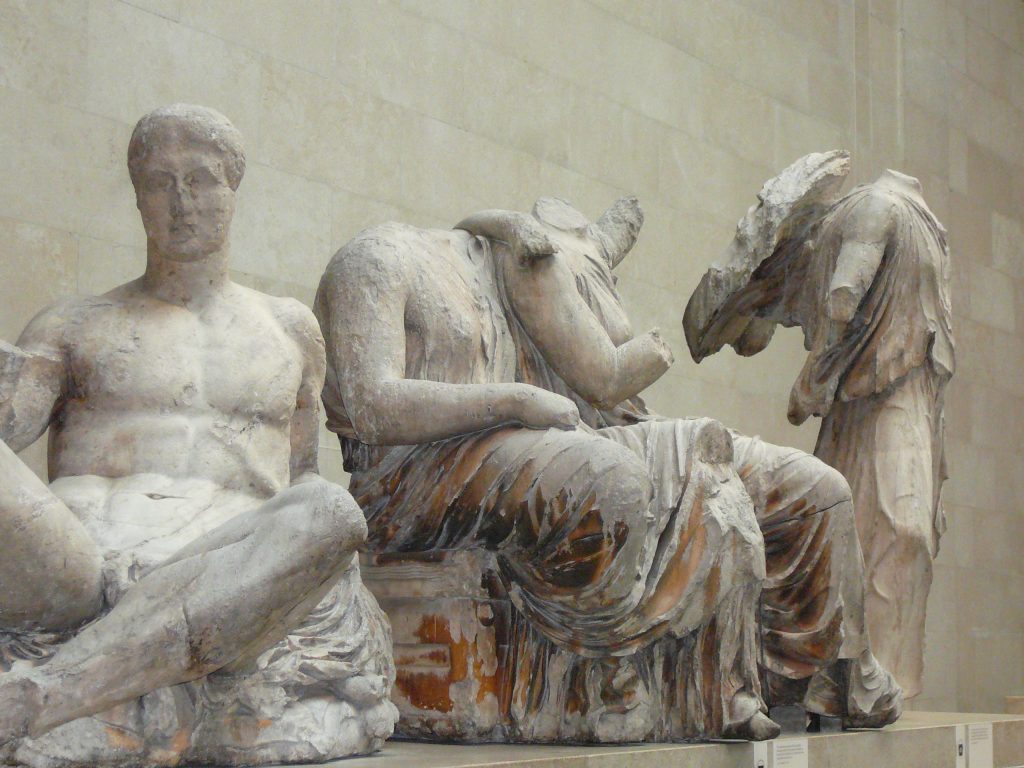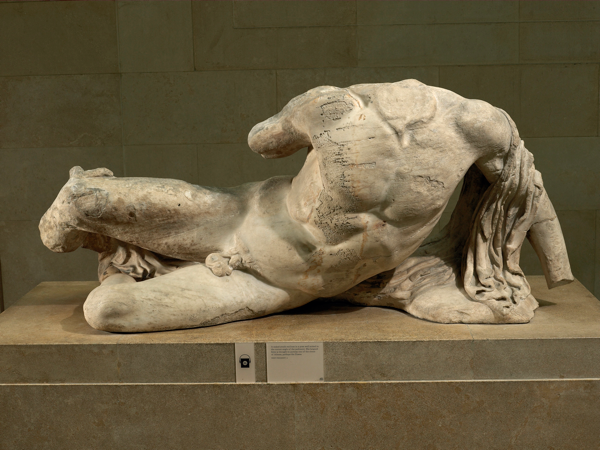Art & Exhibitions
Greece Puts International Pressure on British Museum to Return Parthenon Sculptures
Will the UN get involved?

Will the UN get involved?

Sarah Cascone

High-profile lawyer Amal Alamuddin-Clooney may no longer be on the case, but that doesn’t mean that Greece has abandoned its efforts to repatriate the Parthenon sculptures.
When Greece decided in December not to immediately pursue legal action against London’s British Museum to secure the return of the ancient Greek sculptures, which are also known as the Elgin Marbles, Alamuddin-Clooney was released from her high-profile role as advisor.
Now, nearly 200 years after the British government purchased the marbles from Thomas Bruce, the seventh Earl of Elgin, Greece is hoping to harness the power of public opinion to pressure the UK into returning the iconic works, reports the Guardian.

Amal Clooney, and husband George Clooney. Courtesy of Nicholas Hunt/PatrickMcMullan.com.
“We are trying to develop alliances which we hope would eventually lead to an international body like the United Nations to come with us against the British Museum,” said Greek culture minister Aristides Baltas to the Guardian, noting that the Parthenon Marbles are important part of Greece’s cultural heritage. “If the UN represents all nations of the world and all nations of the world say ‘the marbles should be returned’ then we’ll go to court because the British Museum would be against humanity.”
The date that Parliament voted to approve the purchase, June 7, 1816, has been dubbed “the black anniversary” by those who support the statues’ return to their native land. Lord Elgin claimed to have had permission from the Ottoman Empire to export the statues, which he had forcibly removed from the Parthenon.
Last May, in 141-page legal document reportedly funded by an anonymous Greek shipping magnate, Alamuddin-Clooney and her team urged Greece to file suit against the British Museum in European court of human rights or through the UN and UNESCO at the international court of justice.

Ilissos. Marble statue of a river god from the West pediment of the Parthenon, designed by Phidias, Athens, Greece (438 BC–432 BC). Courtesy of the British Museum.
Although the lawyers believed that the case for repatriation was strong, they urged Greece that the time to act was now. “Unless the claim is brought fairly soon, Greece may be met with the argument that it has ‘slept on its rights’ too long for them to be enforced,” said the report.
The Greek government’s reticence is due to the fear that a court could side against them, nixing their last chance for justice. “Courts do not by definition regard [any] issue at the level of history or morality or humanity-at-large. They look at the laws,” said Baltas. “As there are no hard and fast rules regarding the issue of returning treasures taken away from various countries, there is no indisputable legal basis.”